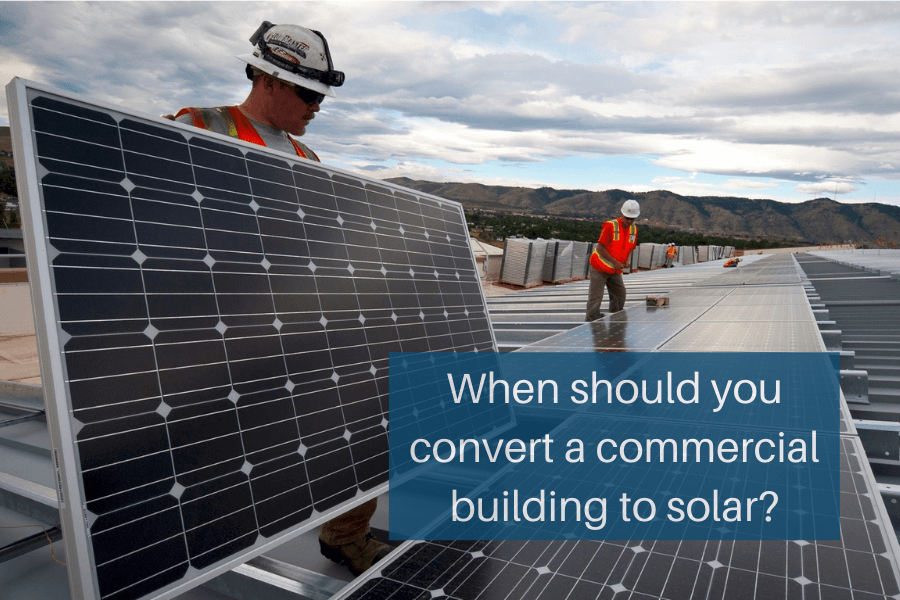But with the economic turmoil created by the COVID-19 pandemic, and declining commercial occupancies with the increase of a remote labor force, property owners must reshape their approach now or run the risk of losing out on dollars.
Enter the rise of solar panels.
Despite the upfront cost of installing and integrating solar panels into your commercial real estate location, property owners are faced with huge returns by switching to the renewable energy source: government tax breaks, expanding on potential renters, demonstrating social responsibility by reducing your building’s carbon footprint, and even improved building security. However, it can be difficult for property owners to make the jump. So we’ve included a handful of situations that mark a potentially fitting time to pivot your commercial space to solar.
After Disaster Strikes
No matter where you are in the US, dangerous weather can strike at any moment. Texas, historically one of the hottest states, just experienced Winter Storm Uri, which caused billions of dollars in damage. The west coast has seen record-breaking wildfires rip through cities and forests, causing unprecedented residential and commercial dry smoke and fire damage. And with Hurricane season approaching in the Gulf and southeast, flood damage claims could be in the millions.
So, if your building is the victim of a natural disaster, you can take advantage of the situation (and potential insurance claim money) to pivot towards the solar output. You will already have contractors on location for other repairs to be made, and you’ll be in a position to further commit the time and resources to refit the infrastructure properly.
In-between Tenets
One of the most stressful times for commercial property owners is when they have unoccupied space. The loss in revenue, especially during times of economic uncertainty, can be a tough pill to swallow and a daunting reality. This is a time when building owners should embrace sustainable change and look for ways to improve their commercial space.
Traditional renovations that some owners might consider are superficial, like changing the flooring or painting the walls. But if you embrace a change to solar energy, you can widen your tenet pool.
We have even seen building owners use empty, unused space such as the top floor of a building or even the roof as a Solar Site Lease to convert it into a new revenue stream. These SSLs are similar to Power Purchase Agreements, where the infrastructure is financed by a third party in a way to split revenue down the line.
In these types of agreements, the building owner faces no upfront financial obligations. But the best part is the solar panels also cut down on building utility expenses due to the decrease in non-renewable energy consumption.
Another great option is to install solar lights for the outside of the building areas, such as parking lots, walkways, common areas, etc. The brighter, solar-powered LED lights also help improve building visibility and cut down on potential property crime
Conclusion
Choosing the right time to renovate a commercial real estate space is more art than science, you know it when you feel it. But the streets of the future are paved green, and the lights are powered by solar energy.
Bloomberg suggests that solar and wind energy production is estimated to hit 50 percent of the world’s output over the next 30 years. By jumping on board early, you can buy goodwill in the community, take advantage of the financial incentives from your local government, and save on your bottom line.



